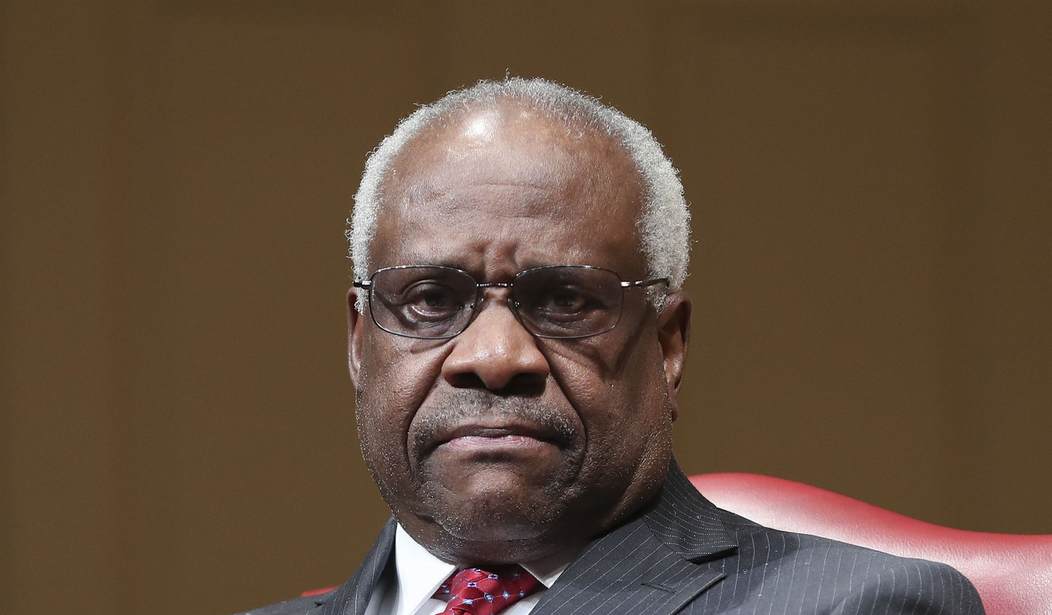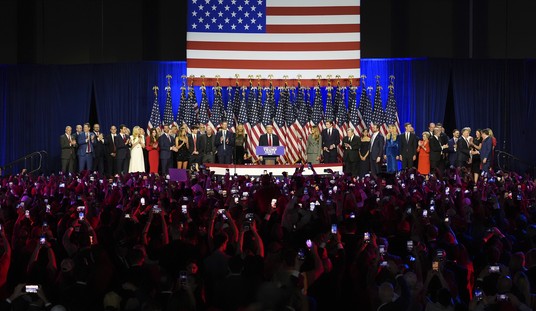On Thursday, the Supreme Court struck down the Trump Department of Homeland Security’s (DHS) memorandum rescinding the Deferred Action for Childhood Arrivals (DACA) program that the Obama administration illegally imposed. Justice Clarence Thomas eviscerated this “timid” decision, arguing that by ruling against the Trump administration’s lawful reversal of the unlawful DACA program, the Court had again usurped Congress’s authority and created “perverse incentives” for political battles to be fought in the courts, rather than elected branches.
“Today’s decision must be recognized for what it is: an effort to avoid a politically controversial but legally correct decision,” Thomas wrote in his dissent. “The Court could have made clear that the solution respondents seek must come from the Legislative Branch. Instead, the majority has decided to prolong DHS’ initial overreach by providing a stopgap measure of its own.”
“In doing so, it has given the green light for future political battles to be fought in this Court rather than where they rightfully belong—the political branches. Such timidity forsakes the Court’s duty to apply the law according to neutral principles, and the ripple effects of the majority’s error will be felt throughout our system of self-government,” the justice warned.
In his dissent, Thomas noted that between 2001 and 2011, Congress considered more than two dozen bills that would have granted lawful status to millions of aliens illegally brought to this country as children. Each legislative effort failed, so Obama’s DHS acted unilaterally. The agency created the DACA program without authority from Congress and without issuing rulemaking as required by the Administrative Procedure Act (APA). Ironically, the Supreme Court — in a ruling from Chief Justice John Roberts — decided that the Trump DHS recision of DACA violated the APA, even though the Obama DHS didn’t follow APA when crafting the program in the first place.
DACA enabled about 1.7 million illegal aliens to qualify for temporary lawful presence and receive certain federal and state benefits — a major change in the law that should have required an act of Congress, or at the very least an official APA rulemaking process.
As Thomas wrote, “the Trump administration rescinded DACA the same way that the Obama administration created it: unilaterally, and through a mere memorandum.”
Yet Roberts and the Supreme Court majority made “the mystifying determination that this rescission of DACA was unlawful. In reaching that conclusion, the majority acts as though it is engaging in the routine application of standard principles of administrative law. On the contrary, this is anything but a standard administrative law case.”
As Thomas noted, DACA was “unlawful from its inception.” Yet the Court upheld the unlawful program through an Orwellian justification — that the recision of an illegal order required the normal procedure that the original order violated.
Alito: Court’s ‘Preposterous’ Trans Ruling Threatens Religion, Speech, Privacy, and Safety
“The majority does not even attempt to explain why a court has the authority to scrutinize an agency’s policy reasons for rescinding an unlawful program under the arbitrary and capricious microscope. The decision to countermand an unlawful agency action is clearly reasonable. So long as the agency’s determination of illegality is sound, our review should be at an end,” the justice argued.
Instead, the Court favored the Obama DHS over the Trump DHS, a politically-charged ruling that Roberts passed off as a matter of arcane policy. Yet Roberts did not say the Trump DHS could not rescind DACA at all — he merely quibbled with the way the Trump DHS rescinded it. In other words, the Trump DHS may rescind DACA now, so long as it follows the APA.
This “stopgap measure” makes the Supreme Court a political arena, rather than a judicial organ merely applying the law equally. Worse, this ruling arguably creates perverse incentives for future administrations.
Thomas warned that “the majority’s holding creates perverse incentives, particularly for outgoing administrations. Under the auspices of today’s decision, administrations can bind their successors by unlawfully adopting significant legal changes through Executive Branch agency memoranda. Even if the agency lacked authority to effectuate the changes, the changes cannot be undone by the same agency in a successor administration unless the successor provides sufficient policy justifications to the satisfaction of this Court.”
“In other words, the majority erroneously holds that the agency is not only permitted, but required, to continue administering unlawful programs that it inherited from a previous administration,” the justice added.
Indeed, it is perverse for the Supreme Court to uphold an unlawful order by claiming the recission of that unlawful order was itself unlawful. This does create an incentive for administrations to unilaterally change the law, hoping that the Court will uphold their abuses even in the face of a following administration’s lawful decision to reverse them.
Conservatives have long championed originalism as a response to the distressing trend of an increasingly political Supreme Court, a Court that takes it upon itself to make law rather than adjudicate cases according to the law as written. Yet savvy lawyers have convinced even Justice Neil Gorsuch to effectively make law by reinterpreting existing statutes — specifically by redefining “sex” to include “gender identity” and “sexual orientation.”
Liberals may cheer these decisions for their outcomes, but these decisions remove lawmaking power from the legislative branch where it belongs under the Constitution. By undermining the rule of law, they make the laws less clear and remove sovereignty from the people. As Justice Samuel Alito powerfully wrote in his dissent in Bostock v. Clayton County (2020), the Supreme Court’s attempts at lawmaking undermine the natural outworking of competing interests that the legislative and electoral processes involve. This increases the chance of unintended consequences like limitations on free speech, religious freedom, and equal protection of the laws.
Many cheered the DACA ruling, as they cheer Bostock, because it reaffirmed their political wishes. But the Supreme Court’s decision to override Congress undermines the effectiveness of America’s Constitution and republican form of government. Votes mean less, and the nine justices become super-legislators.
This decision is not just a rebuke to the Supreme Court, however. Many activists wanted the Supreme Court to make law in this way because Congress failed to hammer out a necessary reform. While Congress spent its time impeaching President Donald Trump, Democrats and Republicans could have worked together to fix these serious immigration issues. As Sen. Josh Hawley (R-Mo.) explained earlier this week, Congress “doesn’t want to make the law.”
Tyler O’Neil is the author of Making Hate Pay: The Corruption of the Southern Poverty Law Center. Follow him on Twitter at @Tyler2ONeil.









Join the conversation as a VIP Member